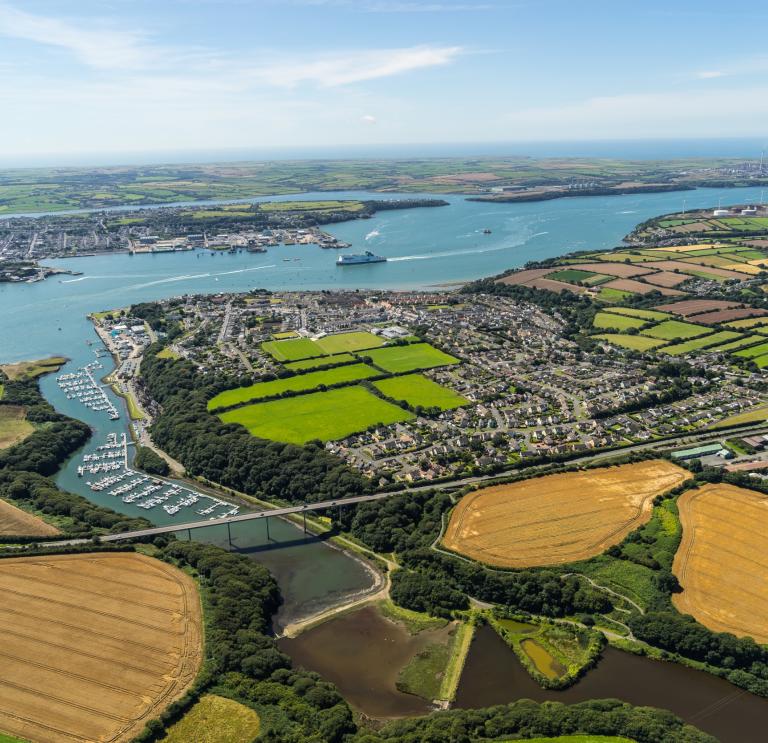Across England, Scotland, and Wales, the government has created 12 new Freeports, which will be dynamic hubs for the industries of the future.
Our port regions have proud industrial heritages and strong economic potential, but in many cases are doing less well than the rest of the country. Freeports are all about securing their economic future, and that of the UK as a whole, by reorienting regional economies towards innovative, low-carbon sectors like renewables and advanced manufacturing.
They will put us at the forefront of the green industrial revolution and create high-quality jobs all across the UK, in the communities where they are needed most.
Collaborative Economic Development
The Freeports will drive the economy across the region they are based in. They bring together local government, the private sector, and other key partners, with long-term backing from central government, to deliver a shared economic vision. Freeports are tailored to, and build on, the strengths of local workforces, infrastructure, and businesses to make sure they work for the places they are in.
Freeports offer a range of benefits for businesses, including tax reliefs on specific sites, an ambitious programme of public investment, and dedicated support for innovation and international trade. We are already seeing how attractive Freeports are for international investors: in just two years, they have already generated £2.9 billion in investment, which will in turn create 6,000 jobs.
Community Empowerment
As well as supporting businesses to invest and grow, Freeports have a positive impact on communities: they create high-quality, long-term jobs in the industries of the future and empower councils to invest in local infrastructure and skills programmes.
Workers and the environment have the exact same rights in Freeports as in the rest of the UK, and by collaborating with universities, colleges, and other key partners, Freeports offer local people opportunities to be at the forefront of cutting-edge sectors.
Whether you’re an overseas investor, a small business seeking expansion, or an individual considering a new career path, Freeports are here to help you, your business, and your region achieve its full potential.
Anglesey Freeport
Anglesey Freeport – a partnership between Isle of Anglesey County Council and Stena Line – drives economic growth and prosperity across North Wales. With an ambition to establish the region as a hub for low-carbon innovation and booming international trade, Anglesey Freeport offers new opportunities for local communities, enhances commercial competitiveness of North Wales, and supports the UK’s economic prosperity.
- Anglesey Freeport and IACC’s Energy Island Programme collaborate to promote Anglesey as a low-carbon energy development leader, offering streamlined processes and financial flexibilities for businesses across this sector.
- The first steps have been taken to revitalise Prosperity Parc, a 200-acre site adjacent to Holyhead within Anglesey Freeport. Stena Line has submitted a demolition notice for the currently derelict buildings on site, paving the way for new development, commercial investment and local job creation.
- Anglesey Freeport is collaborating with local education partners to support North Wales communities by establishing the inaugural Trade Centre of Excellence in Wales. This helps secure Anglesey’s position as a leader in global trade expertise.
See the Anglesey Freeport website for more details.
Celtic Freeport
Celtic Freeport will accelerate significant inward investment in new manufacturing facilities and port infrastructure to support the roll-out of floating offshore wind (FLOW) from the Celtic Sea, while providing the backbone for a cleaner future based on the hydrogen economy, sustainable fuels, carbon capture and storage, cleaner steel and low-carbon logistics.
- Building on the extensive specialist skill base, transmission and pipelines, natural capital and distribution facilities, the Celtic Freeport’s growth sectors are floating offshore wind (FLOW), the production and distribution of alternative fuels (hydrogen, sustainable aviation fuel, biofuels) and low-carbon logistics.
- The Celtic Freeport will accelerate the roll-out of floating offshore wind (FLOW), the hydrogen economy, marine energy, and sustainable fuel production. There will also be substantial investment in port infrastructure at 2 new energy ports and factories to secure first-mover advantage in the global FLOW market.
- The Celtic Freeport will deliver future green skills pathways for young people through a dedicated local legacy fund. It will also establish an innovation network to bring together academics and businesses, utilising innovation assets like ORE Catapult.
See the Celtic Freeport website for more details.
